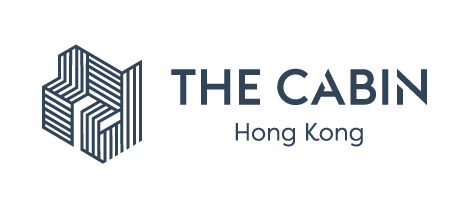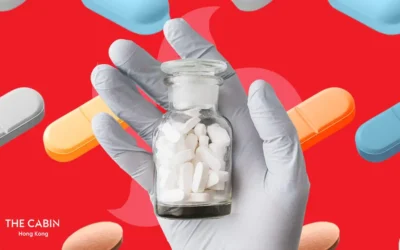Kong generally considers itself on the up-and-up in terms of quelling drug addiction, and at first glance, statistics seem to back up its claim. But closer inspection reveals a more complicated picture; one in which Hong Kongers are tending towards new types of drugs, and keeping it all behind closed doors. Let’s take a look at what’s driving this trend, and what you can do if someone you love is hiding their drug abuse.
Drug Abuse Has Decreased in Recent Years – Or Has It?
The Narcotics Division of the Hong Kong Security Bureau reports that drug abuse on the island has declined as much as 40 percent overall between 2008 and 2015. And last year, the Action Committee Against Narcotics (ACAN) found that the number of Hong Kongers struggling with drug abuse had dropped a further 4 percent since the year prior.
But those numbers could be skewed due to a ‘dark figure’ phenomenon, attributed to the emerging issue of hidden drug abuse. This means that the aforementioned statistics could actually represent only a small portion of what really lies under the surface: far greater instances of drug abuse that go unseen and unreported.
Drug Abuse Hasn’t Gone Away, It’s Just Retreated Into the Shadows
While most official bodies don’t consider drug abuse a grave concern in Hong Kong, the rosy figures that tend to get reported don’t quite add up. The Hong Kong Monthly Digest of Statistics reported in 2016 that, “Despite the continual decline in the total number of reported drug abusers, the drug history of newly reported cases had continued to rise. Half of the newly reported abusers in 2015 had a drug history of at least 5.8 years (5.2 years in 2014). This reflected that hidden drug abuse is still a concern.”
Addiction treatment professionals are starting to express worry that this could mean Hong Kong’s punitive measures against drug use are merely sweeping it under the rug, distancing those struggling with addiction even more from the treatment they so urgently need. Recent trends in the types of substances being used, and the preferred environments of users, are also facilitating an increasingly clandestine world of drug abuse.
The Unintended Consequences of Anti-Drug Campaigns
Some experts view the increase in hidden drug abuse as an unintended consequence of the government’s strict anti-drug policies. As the journal Frontiers in Psychology reports, “As a result of demand-focused prohibitive actions by law enforcement agencies and increasing supplies of drugs over the years, shifts from public to home-based drug activities, gradual decreases in help-seeking tendencies, and changes in drug preferences have been observed and have all contributed to a far more concealed and hidden drug-abuse problem.”
And it’s not unique to Hong Kong – worldwide, punitive measures that push drug use further underground tend to result in the creation of more black markets, and the marginalisation of communities that tend to be more affected by drug addiction. In Hong Kong, police crackdowns in nightlife districts result in increasingly cautious behaviour by drug users, the majority of whom now prefer to use drugs at home as opposed to in riskier, more public settings.
At-Home Drug Use is on the Rise
Data from recent studies also shows that these days, drug use tends to take place in less detectable contexts. While the club drug scenes of the ‘90s and 2000s involved taking ecstasy or sniffing cocaine in quasi-public scenarios, the psychotropics that are now rising in popularity demand more privacy. Crystal meth, whose supply from China is never-ending, requires a glass pipe and snuff kit – not as convenient to use in a Lan Kwai Fong restroom. Whereas drug use used to be social in nature, now it’s more likely to be intentionally hidden from view – and therefore less likely to be caught and reported by law enforcement.
While most drug use begins as a social activity, in later stages of dependency and addiction, it tends to be hidden as users suffer increasingly adverse symptoms like paranoia, anxiety and mistrust of loved ones, in addition to physically apparent symptoms and declining health. Severely addicted drug users have a harder and harder time dealing with the outside world, and come to prefer retreating into their private sphere. Additionally, crystal meth lends itself to binges wherein users stay high for days at a time, and may not leave the house for up to several weeks. The denial inherent with addiction leads users to avoid peers who may confront them about their behaviour or try to convince them to get help.
The Internet and Home Delivery Services Make Private Drug Use More Convenient Than Ever
Concealment of drug abuse has been made even easier in recent years by technology. Through the dark web, social media apps and home delivery services, it’s easier than ever for users to stay home and get drugs delivered directly to their door. Studies show that for over 80 percent of drug users, their home or their friend’s home is the venue of choice. And most heavy drug abusers prefer to obtain substances through their personal contacts due to convenience and cost efficiency.
All that isolation increases safety risk, especially among young users: 81 percent of student drug users surveyed said they never sought help from others. This behaviour is also perpetuated by the drug users’ common belief that they have control over their behaviour, or that certain drugs aren’t addictive.
Recent Anti-Drug Initiatives
In typical Hong Kong fashion, drug abuse is usually addressed with strict legal sanctions, such as the Dangerous Drugs ordinance, which states that people found in possession of illegal drugs may face a fine of up to $1 million and a seven-year prison sentence. In 2010, the $3 billion Beat Drugs Fund was set up to fund community initiatives like increasing access to counselling centres, boosting school outreach and expanding professional treatment capacity. And the figures support its success: by 2017, the total number of reported drug abusers was cut in half – though we now know those numbers may not paint an entirely accurate picture.
Last year’s ‘Tap the Hidden, Tap the Talent’ campaign took a different approach, focusing on treating the mental illnesses underlying addiction. Said North District Hospital Department of Psychiatry consultant Chan Fu, “Actually, drug abuse has a strong association with mental illness,” the combination of which often results in aggravated symptoms of anxiety, depression and even psychosis.
Complications of Hidden Drug Abuse
Unfortunately, hiding drug abuse only serves to make it worse and decrease users’ likelihood of getting help. Hidden drug abusers are more likely to suffer from co-occurring mental health disorders. This is made worse by the increased popularity in Hong Kong of psychotropic substances like ice (crystal meth), which tends to trigger or worsen episodes of mental illness. Hidden drug users also tend to be more resistant to going to rehab, more likely to relapse when they do receive treatment and more likely to be hospitalised at some point as a result of their use.
If your loved one is hiding their drug abuse and you’re not sure how to approach them about seeking treatment, The Cabin can help. We’ve helped countless families navigate the challenges of early addiction recovery, and we want you to know that no matter how far out of reach your loved one seems right now, it’s entirely possible for them to get sober and get their life back on track. Our knowledgeable and supportive counsellors can help you formulate a plan for talking to your loved one and getting them the treatment they need – contact us now to learn more.


